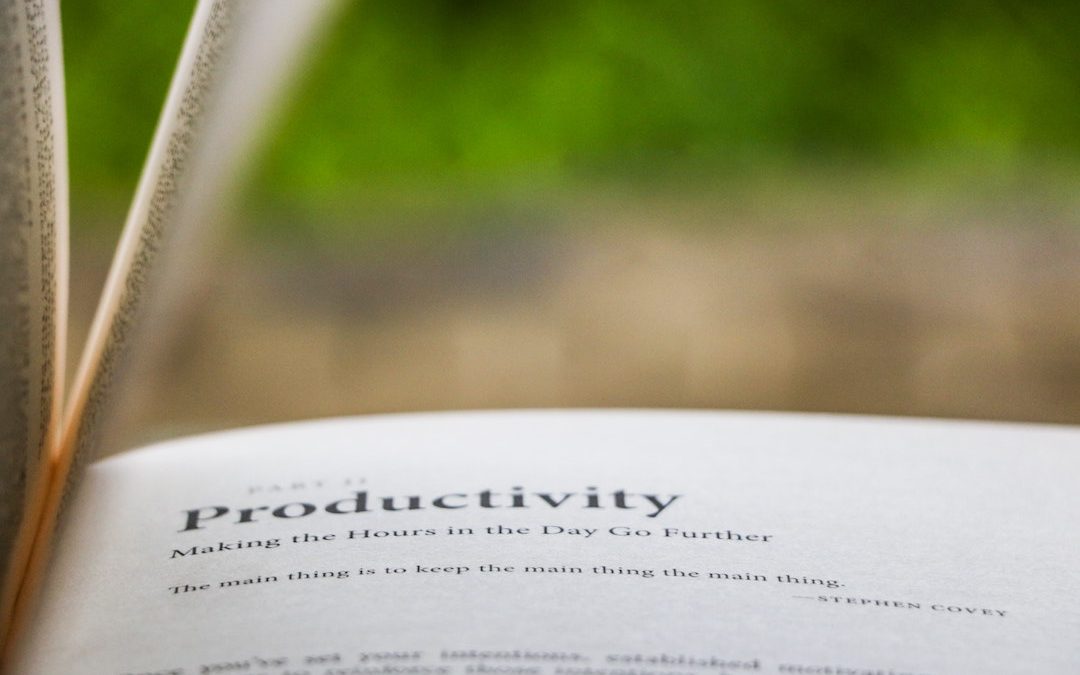
by Rachel Toalson | This Writer Life, Writing tips
At any given time, I’m working on between three and five manuscripts.
Some people’s jaws drop when they hear a thing like that (probably because the average person can hardly imagine working on one manuscript!).
Maybe it’s a leftover consequence of my decade in journalism, when I was balancing feature stories, in-depth investigative series, and the daily news articles that popped up unexpectedly. Or maybe it began even before that. For as long as I remember I’ve had lots of plates to juggle.
In middle school I played every sport imaginable, worked hard to get all As, played the clarinet, and wrote stories on the side. In high school I added to that class president, a boyfriend, and a part-time job. In college I had all of that (minus the boyfriend—I was more focused on education) plus another part-time job (two total—which still didn’t pay like a full-time job), a minimum of four writing-intensive classes per semester, and a band I sang and played guitar in.
I’m a busybody. I like to stay active. My brain works best when it has more than one thing to focus on. Otherwise it can get very anxious and obsessive.
Not everyone works this way. So the first thing I want you to know is that your process is your process. If you don’t enjoy juggling multiple projects at one time, that’s okay. Or if you’ve tried it before and it just doesn’t work for you, that’s okay, too. We are all different people with different brains, and one person’s way doesn’t make another person’s way wrong.
But I do have some tips that have been helpful for me, if you’d like to try (or try again) balancing multiple projects.
1. Make sure they’re different.
When I pick up new projects to write, I try my best to make sure they’re different genres, different age groups, or different narrators from the projects I’m already working on. For example, right now I’m working on two young adult literary books from a female perspective, a middle grade realistic fantasy book from a female perspective, a middle grade horror book from a male perspective, and a young adult biography in verse from a female perspective.
Why am I working on two young adult literary novels at once? Because one is a first draft and the other is a much later draft. One has a female voice that is angry and sarcastic; the other has a female voice that is curious and exploratory. They are in different stages, and they’re different people.
The pitfall we have to look out for when balancing multiple projects is making sure the narrator’s voice or the narrative voice of the story doesn’t sound the same in both. So we have to make sure we know our characters and/or the tone or voice we’re trying to capture in the story.
2. Don’t sacrifice one for the other.
What I mean by this is don’t move on to project #2 just because it’s the new and shiny idea. Writers are notorious for hitting a wall in project #1 and picking up a new project because it’s new and exciting—but never finishing project #1. So if you pick up a new project, make sure you also have plans to finish your first project. It deserves at least that.
It is, of course, perfectly fine to spend more time or an unequal amount of time on project #2, because it’s shiny and new and feels easy—at least much easier than the old project. This could be part of your process and strategy: spending 70 percent of your time on the new project and 30 percent on the old, until the old is done. Because eventually project #2 will get old, and you’ll need to pick up another project to spend 70 percent of your time on.
Do what works for you. Just don’t abandon a story that deserves to be told.
3. Let your brain lead the way.
The subconscious mind does a lot of work behind the scenes, without our even realizing it. That’s why I love balancing multiple projects. It allows my brain to play with a lot of different possibilities. Many times, when I’m writing on project #1, I’ll have a major breakthrough for project #2, and vice versa. The creative brain is a mysterious thing. Inspiration comes at the most unexpected of times.
That said, make sure you have a means of capturing these breakthroughs and little ideas the brain sends. I keep all mine in an idea journal, to revisit later, when I need them.
You may try balancing multiple projects and it absolutely doesn’t work for you—and that’s okay! Keep writing the way that works for you.
Or you may try it and think it’s the best thing ever.
To which I say: Welcome to the club.
Have a fantastic month of creating.

by Rachel Toalson | Writing tips
Now that my kids have been back in school for a while, I am settling into my schedule, trying to use my time as wisely as I can and be as productive as possible.
As a task-oriented person, I have a slight productivity advantage over personalities like my husband’s. He tends toward, “I’ll get done whatever I get done, and no more or less. No expectations. We’ll see what happens.” That’s too ambiguous for me.
There are, of course, advantages that his personality has over mine (I’m reminded of this any time I try to take a day off or we go on vacation), so I don’t want you to hear that one personality is better than the other; that’s not what I’m saying at all.
I do, however, want to share some of my favorite productivity hacks, in hopes that some of them might be helpful to you.
1. Try a schedule.
I know some people cringe at being locked into a schedule. For some it can seem like a prison of sorts. I have to write every day from 10 to 11:30 a.m.? What if something comes up? What if I don’t feel like it? What if…?
I won’t say that this schedule won’t be interrupted now and then. If a teacher calls because my kid has a fever, I obviously have to go pick him up. But having that dedicated time to write, every day, helps when I’m making yearly doctor checkups and scheduling meetings with friends; I schedule around it. It is sacred writing time.
Beyond that, scheduling my days helps me make the most of my time. I schedule workout time, writing time, break time, yoga and stretching time, short walks through the wilderness time. You can even schedule social media time if you so desire. Knowing where your hours go is helpful when you’re trying to accomplish big things with a very tight schedule.
2. Know what you’re going to work on before you sit down (or stand up) to work.
Before I put away my week’s work for the weekend, I always look ahead to the next week and plan. I figure out the projects that will take precedence (I work on multiple projects at a time, which helps me do my best work—but also doesn’t work for everyone). I assign one project to each writing session (I have three sessions during the school year and two during the summer). I plan my business tasks. Then I put my work away and wait until next week to pick it up again.
Planning before my work time begins helps me save time trying to decide, in the moment, what I want to work on. It reinforces the habit and discipline of sticking with a project to the finish. And it means when I have dedicated writing time, during which I’m making lots of decisions for my plot and characters and words, I don’t have to preface all that work with a decision about which project I should pick up—which can often feel intimidating and hinder our starting in the first place.
3. Take breaks and get enough sleep.
It might seem strange to include this suggestion in a piece about productivity. Shouldn’t you want to use all your hours to create? Wouldn’t that be the ultimate productivity win?
No! Contrary to the American way, our productivity is directly tied to how rested and invigorated our mind is. When we burn the candle at both ends (even during a regular eight-hour work day), we risk burnout. It’s practically impossible to create effectively with a brain and mind and body that’s burned out and exhausted.
Schedule regular breaks. Take a quick walk. Meditate. Play a game of Wall Ball with your kids. Sit down at the piano and play for five minutes. Get a snack. Stepping away from your desk for even a few minutes can help reinvigorate you so you’re ready to work smart.
These are not all of my productivity hacks, but I hope they help you in a small way (or a very big way!) this month.
Happy creating!

by Rachel Toalson | Writing tips
What are writing tips? I certainly had an idea for what I wanted them to be—what I planned them to be. Practical things that make us better writers (because you know what they say about teaching—the teacher learns as much as or more than the student). Useful things we could all take into our lives and plug into our stories or essays or poetry or marketing material or…whatever we’re writing. Answers to questions we’ve all had at one time or another.
But lately I’ve felt myself drawn to the more emotional things. Maybe it’s because, in talking with several of my writer friends, I’ve begun to realize that I’m not the only one who’s just…tired.
There’s a lot going on in our world. It takes emotional and physical effort to navigate everything, from politics to pandemics to winter storms (“I survived the 2021 Texas Winter Storm” is not something I ever thought I’d say in my lifetime…nor is “I lived through a pandemic”) and full houses that used to be empty at some point in the day.
I’m tired. We’re tired. A heart and brain and spirit can only take so much. And, well, we’ve taken enough.
Recently, I confessed to a friend that I’ve felt incredibly unproductive, noncreative, stymied in my forward motion. I walk around with a general sense of malaise, unable to focus like I used to. I waste time. I procrastinate—and those are not typical Rachel things to do. As a highly driven task-oriented person, I’ve never had a problem ticking off items on my to-do list.
Do you know how long it took me to call my dentist and reschedule an appointment that was canceled due to those six inches of snow Texas got in mid-February? Two weeks! The item kept moving to the next day’s list, because I couldn’t even summon the energy to pick up the phone and call.
Bills unpaid, sweet potatoes un-roasted, granola not made, book still not finished, that impulse buy at Target not returned, library books overdue, journal left unwritten in for the last three weeks.
We’re all dealing with this in one way or another. (National Geographic had a great article about it recently). Adrenal fatigue is real. We’re not made to navigate crisis after crisis after crisis, at least not in our comfortable modern lives.
So here’s the deal. In January I talked about writing in the small spaces, finding places to create in 5-minute, 10-minute, 15-minute increments.
But sometimes? It’s okay to take a break, for however long you need to. It’s okay to say, Not this week. I just can’t do it this week.” It’s okay to end a long, trying day in front of a screen, watching “Schitt’s Creek” (that’s currently how I spend my Friday evenings).
It’s okay—as long as we don’t stay there.
It’s important to give ourselves time and space to heal from those challenges. It’s especially important to change our self-talk from, Well, I didn’t create anything today—again, to I gave myself a day off so I can create tomorrow.
And when tomorrow comes? Find your 5, 10, 15 minutes and write your heart.
The world needs your words.




